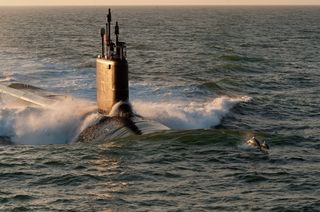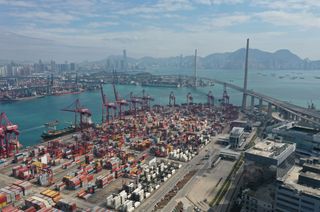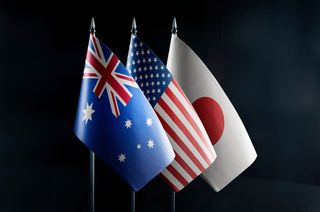The Australian
By Tom Switzer
The downing of Malaysia Airlines flight MH17 was a great tragedy and the response of the Russian-backed rebels in eastern Ukraine has angered the world.
But it is imperative that we think clearly and, if necessary, coldly, about the underlying cause of the Russia-Ukraine standoff that sparked the military blunder on July 17.
If we fail to do so, we’ll have little hope of trying to resolve the crisis. Alas, there is a real danger that the West’s response — more sanctions against Russia, diplomatic isolation of Vladimir Putin, increased military support to Ukraine — could make a bad situation worse.
The conventional wisdom in the West blames Russian aggression. Putin is bent on re-creating the former Soviet empire. The bear is on the prowl, we’re told, and must be put back in its cage.
But Moscow’s actions have been largely defensive and the US and the EU have been hardly blameless. It was the West’s efforts to pull Ukraine away from Russia’s strategic orbit that was guaranteed to cause big trouble — as George Kennan and Paul Nitze, the architects of the Cold War doctrine of containment, predicted in the mid to late 1990s.
By expanding NATO up to the frontiers of the former Soviet Union, and by helping bring down a democratically elected, pro-Moscow — albeit corrupt and thuggish — government in Kiev, the West has needlessly provoked the bear.
For Moscow, unlike Washington and Brussels, Ukraine is a matter of intense strategic importance: it covers a huge terrain that the French and Germans crossed to attack Russia in the 19th and 20th centuries, respectively. Why would any Russian leader, autocrat or democrat, tolerate a Cold War military pact to move into his nation’s back yard? And why would he acquiesce in a Western-backed coup to replace an ally with an anti-Russian regime in Kiev?
Putin’s calculations are based on an old truth of geopolitics: great powers fight tooth and nail when vital strategic interests are at stake and doggedly guard their spheres of influence.
This is unfortunate, but it is the way the world works, and always has. Imagine how Washington would respond if Russia had signed up Panama in a military pact, put rockets and missiles in Cuba or helped bring down a democratically elected, pro-US government in Mexico.
It was inevitable that Moscow would push back somewhere. But if Putin were the reincarnation of Hitler, as hawks such as Hillary Clinton suggest, why hasn’t he annexed the rebel strongholds of Luhansk and Donetsk in eastern Ukraine? Where were the signs of the Kremlin’s intentions to invade Crimea before the downfall of the pro-Russian Yanukovych government on February 22? It was this event, remember, that sparked Putin’s military incursion in the Ukrainian peninsula, the traditional home of Russia’s Black Sea fleet.
For the West to further isolate Moscow and escalate military support to Ukraine is fraught with danger. Russia is a declining power, but it maintains a huge arsenal of nuclear weapons. If made desperate and humiliated further, it could be dangerous, like a cornered, wounded animal.
Strident talk about banning Putin from the G20 in Brisbane will only backfire against the West’s interests. The point of such institutions is not that they are a reward for conformity but that they provide a means to deal with common challenges. Moscow’s help is needed in Iran, Syria and Afghanistan. Isolating Russia would also drive Moscow closer to Beijing: hardly in the US interest.
At a time when Americans are tired of the world, moreover, it would not seem prudent to pick a fight over a region where no US army has even fought before.
Although American views of Russia are less positive today than at any time since the end of the Cold War, few consider Putin a critical threat to the US. According to a recent Chicago Council on Global Affairs survey, only 30 per cent of Americans support military intervention in Ukraine if Russia invades the rest of the country.
Rather than extend economic sanctions against Russia and boost military support to Ukraine, our leaders should tone down their bombast and understand the motives for Putin’s conduct. He wants Ukraine to be a neutral buffer state (neither a NATO nor EU member) and its government to respect minority rights of ethnic Russians in this bitterly divided country.
If Moscow and the Western-backed regime in Kiev can’t reach a settlement, and the latter continues to bomb cities in eastern Ukraine, more disasters like MH17 can’t be ruled out.
My view is a minority one in Australia, but it is widely held among leading American foreign-policy realists such as John Mearsheimer (University of Chicago), Stephen Walt (Harvard University), Ian Bremmer (Eurasia Group) and Stephen Cohen (Princeton).
Our aim is not to defend Putin but simply to explain his response to what he deems a genuine threat to Russia’s vital interests. If we understand Putin’s motivations, his conduct is easy to understand, which is not to say we have to like it. We need to understand what caused this crisis to have any hope of trying to resolve it.
This article was originally published in The Australian




